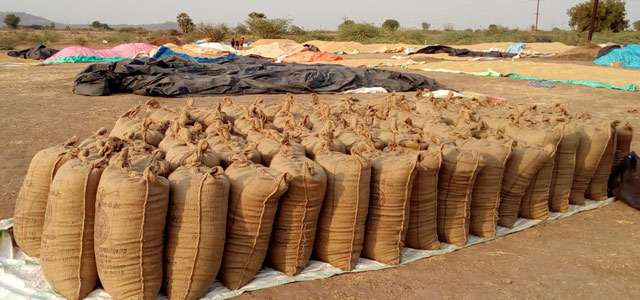Paddy procurement has always been a problem area in our state. Every year, the government receives flak for its inept handling of the programme. The Odisha State Civil Supplies Corporation (OSCSC), the key player of the state’s `12,000 crore plus paddy procurement programme, has not learnt a lesson from its past mistakes. Allegations of corruption against supply department officials and those of regulatory market committees (RMCs) have been dime a dozen. Complaints of their hand in glove with rice millers and recently with Women Self-Help Groups (WSHGs) and Pani Panchayats (PPs) fly thick and fast. Yet, the government has done precious little to fix the problem. Like in the past, this year too there are issues with procurement. Ever since paddy procurement was decentralised in the state and the OSCSC was given the mantle of the programme, procurement has been mired in controversies. In 2005-06, the government had experimented with private players who bought paddy on behalf of the Food Corporation of India, but that was discontinued after two-three years. There were no such complaints then of non-lifting of paddy. The private players who procured paddy from farmers by investing upfront tried to do maximum lifting so that their returns are maximised. Delayed payments or non-payments to farmers, non-opening of mandis, and the token issue have bogged the process. These issues are cyclical. It is not that we have a set of new problems to grapple with this year, yet the government has failed to find a permanent solution to these problems.
Odisha is predominantly an agricultural economy. Over three quarters of its populace depend on farming for their livelihood. As paddy is the only crop that is sold at minimum support price (MSP), farmers here majorly cultivate paddy. In the absence of an open market for paddy, and lack of avenues to make rice-based products, farmers look to the government to buy their paddy. The programme happens in two phases — November to February and the summer paddy that arrive between May and June. The state Food and Consumer Affairs department under whose control the OSCSC functions has to find a way out to end this mess. Farmers taking poison in mandis over their frustration to sell paddy, farmers staying up in mandis for days to sell their produce, and the much cursed token systems are cyclical problems. This year, the issue has been pushed to the centre-stage. The Opposition is not allowing the Assembly to function demanding that the government resolve the problems. That a BJP member attempted to commit suicide by consuming sanitizer in the House has brought in added gravity to the paddy procurement issue. While the BJD has demanded an apology from the member for his suicide bid in the floor of the House, the Opposition has been steadfast in its attack on the government. The stalemate in the House over paddy procurement continued for the fifth day Wednesday. Going by the way both the ruling party and the Opposition are arrayed over the issue, the session is headed for a washout.
What is the way out to end the recurring problems in paddy procurement? Is this not the time to review the entire programme? Is this not the time to divest the OSCSC, which is already overburdened with too many responsibilities, of paddy procurement work? The corporation not only procures, it also distributes rice to the beneficiaries through various Central and state government schemes. Added to that are its myriad other responsibilities. Can’t the state government crate something like a special purpose vehicle (SPV) to take care of the paddy procurement? The government on its part should also stop meddling in the process in the form of involving WSHGs and PPs in paddy procurement. The SHGs in Odisha have been great tools for the government to win votes. Paddy procurement has been an uber-lucrative programme. If one studies the Centre’s cost-sheet, there are fat commissions earmarked for every stakeholder involved in the exercise. This is the reason why the OSCSC has been zealously trying to hold on to its turf and the government throwing breadcrumbs to its patrons to retain their goodwill. When everybody in the game is a winner, why should the farmer lose?







































